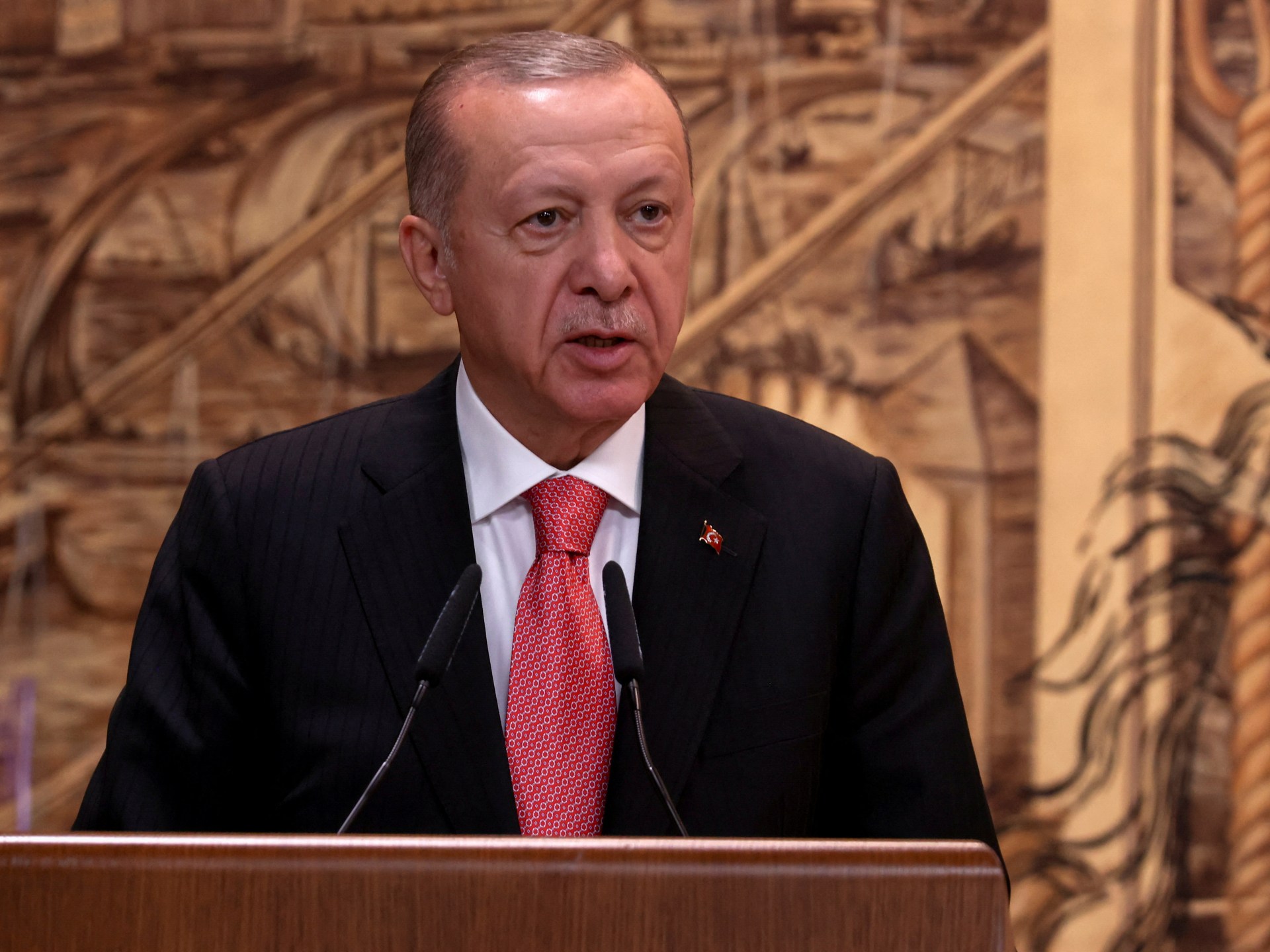“We are neither in the East nor in the West,” that is the slogan of Turkish President Recep Tayyip Erdogan since the start of the Russian invasion of Ukraine, according to a precise policy between Kyiv and Moscow that enabled him to achieve a number of major diplomatic achievements.
On Thursday, Ukraine announced that it had released 55 prisoners of war in exchange for Russia's release of 215 prisoners, including the commanders of the defense forces of the Azovstal steel plant in Mariupol.
Ukrainian President Volodymyr Zelensky explained that as part of this exchange process, which "taken a long time to prepare," Moscow released 5 military leaders who were transferred to Turkey.
The importance of Turkey's role in reaching this agreement is still unclear, but in reference to the key role that Ankara played behind the scenes, the Turkish president was the first to talk about the impending prisoner exchange during a television interview last Monday with PBS. ) American.
"Our heroes are liberated, all this has become possible thanks to the agreements between President Zelensky and President Erdogan," Ukrainian Ambassador to Ankara Vasyl Bodnar said on Thursday.
Ukrainian prisoners of war released under the exchange agreement with Russia (Anadolu Agency)
Combine the two opponents
Since the start of the war in Ukraine on February 24, Russia has twice been able to gather representatives of Russia and Ukraine on its territory.
Last July, Ankara played a key role in concluding an agreement between Kyiv and Moscow under the auspices of the United Nations allowing the resumption of the export of Ukrainian grain through the Black Sea and the Bosphorus Strait.
In early September, Erdogan offered Moscow his mediation to help resolve the crisis over the Ukrainian nuclear power plant in Zaporozhye.
flawless diplomacy
In the context of the praise that the former French ambassador to the United States and to the United Nations, Gerard Araud, wrote on Twitter at the end of last August, “Turkish diplomacy has not done anything wrong since the beginning of the war in Ukraine in terms of assessing its interests and balancing the belligerents and firmness.” If necessary, taking advantage of existing conditions.
Even as Ankara supplied Kyiv with military drones, the Turkish government refused to join the camp of Western countries imposing sanctions on Moscow, and NATO member Black Sea Turkey has continued to strike a balance in recent weeks.
Erdogan - who has met his Russian counterpart Vladimir Putin 3 times in the last three months, and who speaks regularly with Ukrainian President Volodymyr Zelensky - accused the Westerners in early September of committing "provocations" against Moscow.
The day before, he had attributed the energy crisis in Europe to the sanctions imposed on Russia, standing by the Kremlin, but the Turkish Foreign Ministry condemned, on Wednesday, Russia's "illegal" plan to hold a referendum aimed at annexing 4 Ukrainian regions controlled by Russian forces.
Gérard Araud said, "Turkey is a regional power (...) whose geography exposes it to pressures as much as it gives it means to put pressure on the actors, and which the belligerents need and therefore take care of."
"Despite his military support for Ukraine, President Erdogan has basic political and economic reasons to maintain good relations with Moscow," said Soner Cagaptay, a research fellow at the Washington Institute for Near East Policy - in a paper released in early September. for Ukraine".
Turkey, led by Erdogan, sponsored a number of international diplomatic mediation files (Reuters)
mediation files
This is not the first time that Turkey has tried to play the role of mediator. At the beginning of the 21st century, Ankara deployed "peace diplomacy" in the Middle East, in a special attempt to sponsor negotiations between the Israeli government and the Palestinian Authority, and as of 2009, Ankara also played the role of mediator in the Iranian nuclear file. .
Turkey faces inflation of more than 80% annually, and it has to deal with a currency that has lost more than half of its value within one year.
And since Turkey is highly dependent on Russian oil and gas, the Turkish president has every reason to want to take into consideration Moscow, 9 months away from the June 2023 presidential and legislative elections in Turkey.
Until then, Erdogan will also seek not to anger his Western allies, especially since at the end of last August, Washington warned Turkish companies dealing with Russia of possible retaliatory measures.
In his interview last Monday with PBS, Erdogan summed up his position by saying, "I say this clearly: We are part of this world, but we are neither in the East nor in the West."

